You’re curled up on a 52% rated hostel bed pouring over your Lonely Planet like a travel junkie itching for your next exploration fix only to find that the opportunity for new expeditions just doesn’t excite you anymore. You’re tired, discouraged, frustrated, and you wonder whether you should have just taken your brother-in-law’s job offer. You’ve lost faith in the lifestyle, in the very philosophy that motivates you to curious movement. You’ve been clotheslined by burnout. And it sucks.
In my opinion, the best way to beat burnout is at a luxury resort on an endless ribbon of white sand, a mojito in one hand, two others rubbing my shoulders, and my hired butler removing the silver lid from my platter of Pad Thai. Unfortunately, on RTW trips, when extended movement and time away from home makes burnout most common, your tight budget is more likely to dictate your decisions than your fantasies.
[social]
So for those of you who can’t make it to that pampered hammock in paradise, here are eight ways to beat travel burnout without burning a hole in your pocket.
1. Plan for burnout
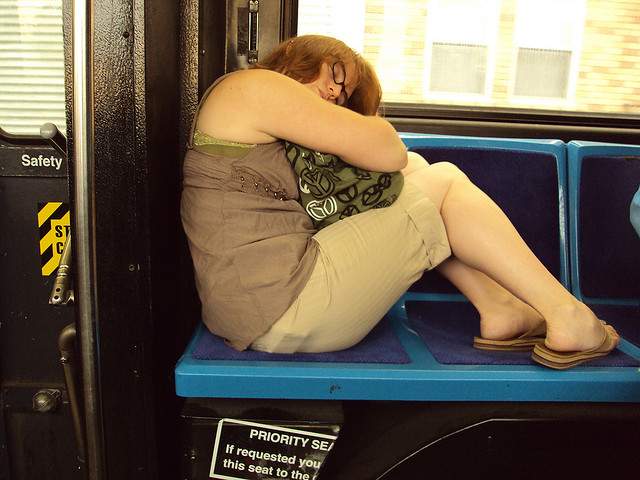
When planning a trip, our cubicle-induced uber-excitement creates travel ambitions that even Phileas Fogg couldn’t accomplish. We also tend to view ourselves as wanderlusting Energizer Bunnies, capable of going on nothing but beef jerky and Capri Sun. Unfortunately, on a RTW trip, burnout is inevitable. So why not plan for it instead of letting it creep up on you like that shady guy in your hostel? Working a predetermined pit stop into your schedule turns the burnout into another destination and not some stomach bug stealing itinerary space.
For a trip shorter than three months, plan a break somewhere within the third quarter. This gives you enough time to burn off your initial enthusiasm so it won’t be stifled by your fore-destined breather. For anything longer than three months, a good rule is to plan a break about every six weeks.
And in addition to saving your travel spirit, you’ll also save money by having a plan, instead of stumbling wallet first off that 26 hour bus ride into some spontaneous burnout rehab destination with a mental priority list that puts price on the bottom.
>> Sign up for our free trip planning program – Plan Your RTW Trip in 30 Days
2. Stop
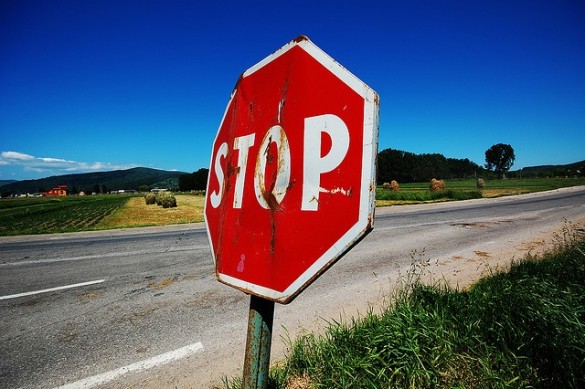
Most articles dealing with burnout will tell you to slow down. They say you’ve packed your itinerary tighter than your 60 liter travel pack, and it’s time to trim some of the overly ambitious travel fat. While to a certain extent I agree with this, I also know that as curious globe trekkers it’s often difficult to pick where to slow down and where to skip, which often leads to doing neither. Additionally, when you’re exhausted and discouraged, seeing two cities in a week instead of four days will still feel like too much. That’s why the best advice isn’t to slow down, it’s simply to stop altogether.
When the burnout hits, you have 24 hours to stop. If you don’t like where you are, hustle to somewhere better. And then stay. How long depends on you, for some it may be 5-7 days, for others it may be 5-7 months.
You’ll save on transportation costs by not moving. You can ask the hostel or hotel you are staying at if they offer discounts for extended stays, which lowers your per night sleeping budget, or you can look into rentals so you can really unpack your bags and have a “home” for a while. You’ll get a chance to know a place better than if you just passed through. This means finding the cheapest places to eat, visit, and hang out, and will also make you feel more connected to the place you are visiting.
>> Learn more about the benefits of slow travel
3. Ditch the city
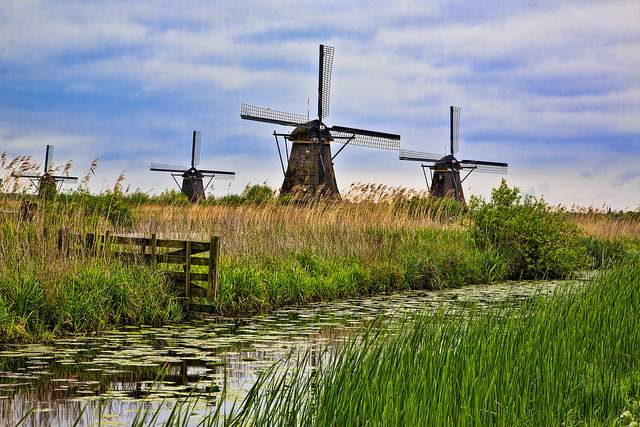
If possible, get out of the city for your vacation vacation. The countryside, a beach, or a mountain town seem to be the best places for burnout victims as the pace is slower, the scenery is more calming, and the cleaner ambiance is more energizing for the spiritual travel self. Smaller towns also often offers the truest version of any country, and the experiences you have there can be applied directly to the burnout by creating authentic travel stories and re-inspiring your initial interest in the destination.
On a trip to Europe, two of my most effective burnout treatments, and consequently, greatest memories, were a bike trip out to the windmill riddled pastures of Amsterdam’s countryside, and ditching Dublin for some easy hiking, mountains of food, and a proper lager on Ireland’s rural Western coast. And as an added benefit, in most countries, price drops are directly related to distances from the big city.
>> Get tips for getting off the beaten path in Thailand or discover some less-visited countries to explore
4. Pursue peaceful attractions

If leaving the urban is inconvenient or financially impossible, or you just can’t bring yourself to stop sightseeing, then at least pursue cultural attractions that intentionally foster quiet and serenity within the city. This gives you the opportunity to continue your travels in a burnout-healing way without dedicating a period of your precious travel agenda purely to recovery.
In many cities, libraries are not only a calm book depository, but also a terrific example of cultural architecture and a catalogued living history of a place. A few of the most stunning libraries in the world, and icons of their respective cities, are the British Library in London, the Vancouver Library Square, and the Real Gabinete Portugues de Leitura in Rio de Janeiro. Botanical gardens and large parks offer another great way to escape the bustle by mimicking the countryside. Among the largest city parks in the world are Chapultepec Park in Mexico City, Metropolitan Park in Santiago, and Bitsevsky Park in Moscow. You could also attend a service at one of the churches, cathedrals, mosques or synagogues that are major attractions in any major city in the world. Visiting the interior while participating in the service will give you a chance to sight-see in mellow solemnity.
Libraries, botanical gardens, parks and holy places during service are often free or very cheap to visit as well.
>> Check out some of the most beautiful libraries in the world or learn about gardens around the world
5. Stay in a private room or a short-stay apartment
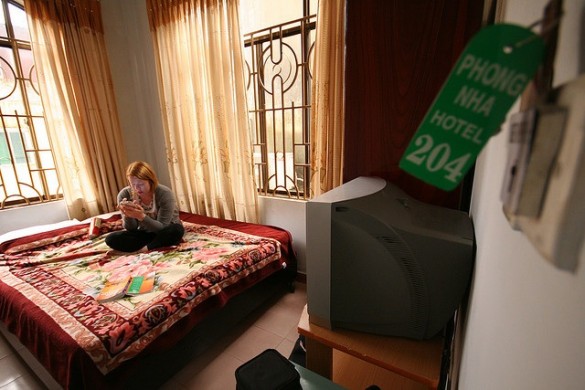
Book a private room in your hostel with an ensuite bathroom. Sleep is important for the recuperating burnout casualty and a private room will give you your best low-cost chance at a full night by removing the clattering wasted dude who attempts to climb onto the top bunk at daybreak. Invest in a solid pair of earplugs, pull down your sleep mask and hang a homemade ‘Don’t Disturb’ sign on the doorknob, then settle in for some relatively blissful slumber. In the morning, you’ll have your own bathroom, so you don’t have to follow those awkward unwritten etiquette rules of hostel bathroomery, which will, inevitably, aid in your relaxation.
Obviously a private room with a bathroom costs more than a 20-bed dorm, but often in the grand scheme the price difference is negligible. Stay in the outskirts of the city or in a less touristy area for a better price, or at the very least, book the private for just one night. The money you save by relaxing on your own and passing out early, instead of walking by the common area and being suckered into tequila shots down at Backpacker’s Party Haven Hostel, will more than make up for the dorm/private price difference.
If you have a bit more cash to spare or are traveling with a partner or as a family, get an apartment for a week or two (or more; the longer you stay the better the per night price you can negotiate) and make yourself at home for a while. Get to the know the neighborhood, visit the local market, and enjoy having a space to call your own for a bit. Look into house-sitting before you leave as well, as this can be a great way to slow down and get accommodations for free!
>> Find out what you should look for in a good hostel, get tips for finding the right home or apartment rental, and find out all the accommodation options for RTW family travel
6. Pull your travel life together
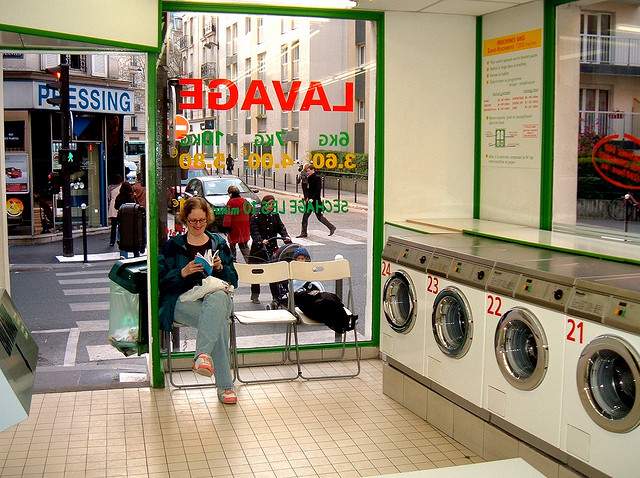
Back home, I always need Sunday to pull my life together. Dishes. Shave. Shop to fill my fridge with things that don’t cook in a microwave. When traveling, our home is our pack and our self, and it is equally as important to occasionally spend some time pulling them back together.
Take a long, hot shower. This is easiest if you have a private bathroom, but can also be done during the day when most travelers are out exploring. Try lowering the water pressure a bit to make the hot water last longer. Do your laundry at a real laundromat instead of in the sink. You can bum a cup of detergent from a local, or sneak one from an unattended or abandoned bottle. Dry your clothes in the dryer as well. Get that warm, crisp well fitted feel to them instead of that loose, haggard wrinkly quality imparted by air-drying on the bunk bed bars. Shave. The bar soap at your hostel makes a lather that is a suitable substitute for cream. And get a haircut at a small local place – cheap and cultural.
Then clean out and organize your bag. Empty it and turn it upside down to get out those peanuts and raisins from when your trail mix spilled. Organize your clothes by genre into large Ziploc bags and keep a few extra so that at least for your next outfit cycle you can keep the dirty clothes out of contact with the clean ones. Your pack should be representative of how you want your first post-burnout week to transpire; clean, organized and with plenty of space for new adventures.
>> Get more tips for organizing your life on the road
7. Mind your diet
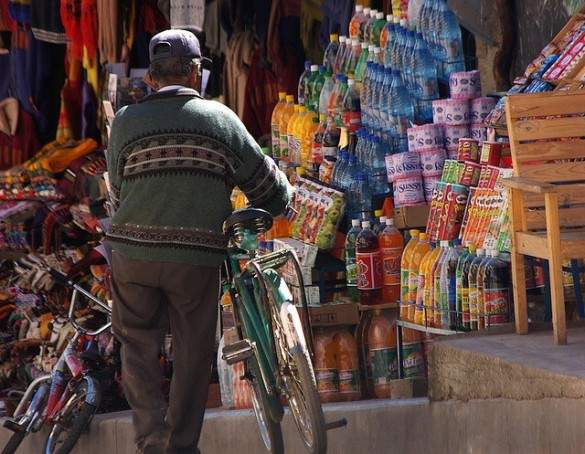
One common symptom of burnout is the discouraging desire to pack it in and head home. You’ve spent too long navigating the cheapest riverboat-share van-rickshaw route and you just want to collapse onto your couch with your favorite local beer and a sitcom in your native tongue. One great way to reconnect with home without physically heading back is through food.
For me, the end of a frustrating foreign day calls for a root beer and bag of Pop Secret. It’s a snack I used as a de-stresser back home, and abroad it always reminds me of my comfy couch and favorite American TV shows. In our globalized world, most places you travel will have somewhere that sells something from home. In lieu of the spotty availability of root beer and popcorn, I’ve found solace in Pringles and a can of Coke. They’re cheap, portable, omnipresent, and most importantly, quintessentially American. I settle into another bumpy bus ride and once I pop, in all honesty, a certain amount of the anxiety does stop.
You should also lay off the booze. Even though in many countries the alcohol and the parties are a large part of the culture, waking up hungover will only fuel the burnout. If, by chance, the burnout suddenly strikes during your only three days in Tuscany, then at least drink burnout responsibly. There’s nothing wrong with a glass of red along the Grand Canal, or a hefewiezen in a street cafe in Bavaria. This type of drinking promotes calm and cultural engagement and will only help stifle the burnout. Also, missing the parties for a week will inflate your budget more than you expected.
>> Get tips for staying healthy while traveling and learn about nightlife activities other than drinking
8. Document your trip
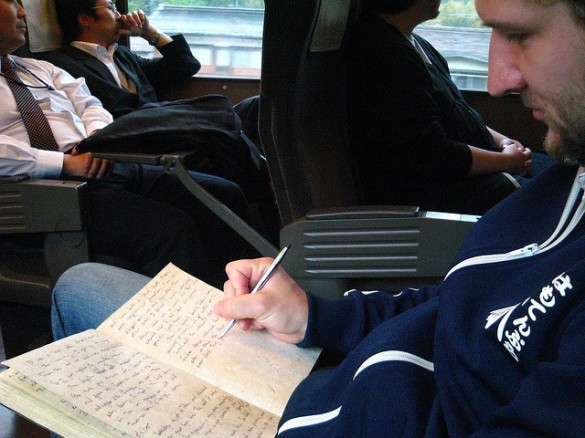
Whether it be a moleskin journal, a travel blog, or just regular emails back to your parents, keep track of your trip in writing. The result is a physical and easily recalled documentation of your trip that will help you remember all the amazing experiences you’ve had and rekindle the enthusiasm that existed before your travel spirits dampened. With a blog, a post leaves the opportunity for positive and even envious comments from your readers. One of the most effective remedies for burnout is people telling you that they are jealous of your travels.
When you sit down to write or reflect, find a quiet, contemplative spot. Make writing an opportunity to slow down, enjoy your location, and let the burnout flow out through your pen or fingers. Contemplating your burnout, then writing about it, can be a great way to start relieving it.
This is an exercise that doesn’t take a lot of time or money. Blogs and emails are free. If you have your own computer, find free wifi at your hostel, local coffee shop or a large hotel lobby. Using an Internet cafe is typically very cheap as well. Or go old school and purchase a durable journal; a small one time cost that can last you the whole trip.
>> Find out if you should start a travel blog for your trip
Read more about long-term travel:
- 12 Ways to Combat the Solo Traveler Blues
- From Tourist to Resident: 7 Signs You Just Want to Stay Put
- 10 RTW Travel Myths Debunked
Photos by: bitchcakesny, eVo photo, albert_debruijin, somebody_, faithmonsoon, Todd Mecklem, Jessie Reeder, daedrius
